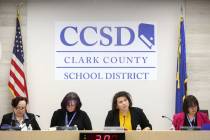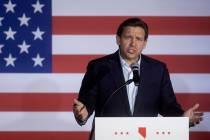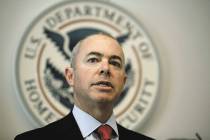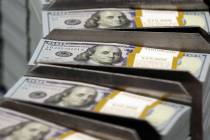Editorial: Sick days
A report released last month revealed that while Nevada kids may lag academically, they’re quite proficient at cutting class.
About one in five of the state’s public school students — 18.1 percent — missed more than 15 days of class during the 2013-14 academic year, the U.S. Department of Education found. That put Nevada eighth worst among states in terms of chronic truancy. The national average was 13 percent.
Turns out, though, kids aren’t the only ones who like to play hooky. So do teachers.
The Review-Journal’s Neal Morton reported this week that an analysis of federal education data shows that about 56 percent all Clark County School District teachers missed more than 10 days of school in 2013-14. That’s more than double the national rate, Mr. Morton noted.
As one might expect, this has deleterious ramifications. Not only do kids not learn when they skip school, they also tend to struggle when their classroom instructors frequently miss work. Substitute teachers deserve heaps of praise for taking on a thankless and difficult task, but the disruption in continuity inevitably takes a toll.
“If teachers are out and a substitute comes in for one day, a week or six months, it’s detrimental to students,” said Mike Barton, the district’s chief school achievement officer.
Studies have shown a link between teachers who miss a lot of work and subpar student progress. Raegan Miller, a research fellow at Georgetown’s Center on the Future of American Education, published a paper in 2007 which found that math students taught by teachers who missed at least 10 days a year experienced a “statistically and educationally significant” reduction in achievement.
It’s worth noting that Clark County teachers enjoy ample sick-day benefits. Not only do they get 15 days a year — on top of regular time off during the 10-month school year thanks to numerous holidays and breaks — they may also bank unused sick time.
Mr. Barton proposes providing incentives to teachers to minimize the use of sick leave. But the roll-over provision already does precisely that by allowing teachers to eventually cash in whatever they don’t use. Reducing the number of days available may help a bit, but that penalizes dedicated teachers who show up to work on a regular basis.
A better approach would be to first identify educators who have chronic attendance issues and then more closely monitor their absenteeism and performance. Increased oversight might help deter abuse, as would disciplinary policies that give principals and administrators the power to deal with habitual no-shows.
No one should begrudge teachers using sick time when they need it. But those who are exploiting the benefit harm the students in their charge. The district simply cannot afford to let this problem fester any longer.























